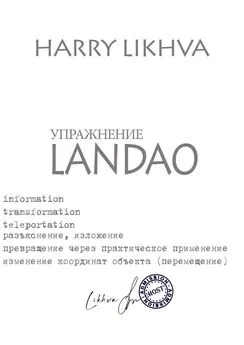Harry Turtledove - Give me back my Legions!
- Название:Give me back my Legions!
- Автор:
- Жанр:
- Издательство:неизвестно
- Год:неизвестен
- ISBN:нет данных
- Рейтинг:
- Избранное:Добавить в избранное
-
Отзывы:
-
Ваша оценка:
Harry Turtledove - Give me back my Legions! краткое содержание
Give me back my Legions! - читать онлайн бесплатно полную версию (весь текст целиком)
Интервал:
Закладка:
X
From perhaps half a mile away, Sigimerus eyed the Roman encampment of Mindenum. “You want us to go in there?” he asked, his voice rising in disbelief.
But Arminius nodded. “I do, Father. I’ve been in and out several times. Varus thinks I can’t possibly be dangerous. And why? Because I don’t hide from him, that’s why. He doesn’t believe someone who is an enemy of Rome would dare let the legionaries get their hands on him whenever they please.”
“I can see why he doesn’t,” Sigimerus muttered.
A train of ox-drawn wagons guarded by Roman soldiers brought supplies from the Lupia River to the fortress. By now, after a couple of years, the wagons had worn deep ruts in the German soil. The Romans thought they were wearing their way into Germany in the same fashion. Arminius stubbornly refused to believe it. That the invaders felt they needed so many men to protect their goods showed how far from victory they were. It did to him, anyhow.
“Come on. He will treat you with honor,” Arminius said. “Why shouldn’t he? Aren’t you the father of a Roman citizen, the father of a veteran of the Roman auxiliaries?” Sigimerus was the father of two veterans of the Roman auxiliaries, but Arminius refused to think about Flavus, who was still fighting in Pannonia.
“Gods grant I am not the father of a fool,” Sigimerus said.
Despite the gibe, he followed Arminius toward the fort. He studied it with keen interest as they got closer. Arminius understood that. The Romans were masters of fieldcraft. No German army had ever dreamt of protecting itself in hostile country the way the Romans did. The Germans thought the Romans worked too hard . . . till they had to attack one of those encampments. Then the legionaries’ labor proved its worth - again and again and again.
A Roman soldier outside the rampart spied the approaching Germans and trotted over to see who they were and what they might be up to. “Oh, it’s you,” he said, recognizing Arminius. He sounded polite but businesslike: not a tone a German would have been likely to take. “Who’s this, ah, gentleman with you?”
Who’s this barbarian with you? That was what he’d been on the point of asking. Arminius was sure of it. But the Roman had swallowed the insult, so Arminius had to pretend he didn’t know it was there. “This is my father - his name is Sigimerus. He has come to meet the great Quinctilius Varus, whose praises he has often heard from me.”
No German would have swallowed flattery laid on even half so thick. But the legionary did. The Romans were in the habit of extravagantly flattering one another. They might have been so many dogs, licking one another’s privates and assholes. But they were dangerous dogs.
This one wasn’t dangerous now; the flattery put him at ease. “Well, he can do that. You can do that. Come along with me, and I’ll bring you to the gate.”
By the way he spoke, he intended to be obeyed. Arminius had to use an effort of will to keep his hand from dropping to the hilt of his sword. How dared this trooper order him around? But Arminius had seen that Romans always thought they could order anyone who wasn’t a Roman around, just because they were Romans.
Yet another reason to make sure they lost their hold on Germany.
Arminius glanced over to his father. Sigimerus was less used to Roman arrogance than he was himself. The older man looked ready to murder the legionary who was leading them to the encampment. Ever so slightly, Arminius shook his head.
His father’s raised eyebrows asked, How can you put up with people like this, even for a moment? And Arminius’ tiny shrug answered, Well, what choice have I got? He couldn’t see any, not yet.
The men at the gate greeted him politely enough. “Hail,” one of them called. “Come to call on the governor again?”
“That’s right,” Arminius answered.
“Is that your father with you?” the Roman asked. “The two of you have a family look.”
“Yes, it is,” Arminius replied in Latin. In his own language, he added, “Do you understand them, Father?”
“Well enough,” Sigimerus said, also in the Germans’ tongue. He switched to Latin slower and less fluent than Arminius’ to give the sentries his name.
“Hail, Sigimerus,” said the one who’d greeted Arminius. “Welcome to Mindenum.”
“I thank you,” Sigimerus said. Arminius didn’t think he’d ever heard anything less sincere in his life.
His father kept looking around the encampment once they got inside. “These Romans are an orderly folk, aren’t they?” he said in his own speech. “They enjoy living like animals in cages, eh? All in row after row. Boring!”
“I think so, too, but it works for them.” Arminius added, “Be careful with your words, Father - some of the Romans have learned bits of our tongue.”
“I thought you told me they stuck to Latin whenever they could,” Sigimerus said.
“They do - especially the officers. They think learning our speech - or any other speech except Greek - is beneath their dignity,” Arminius answered. “But the common soldiers aren’t so fussy. If they’re in the field and they get hungry or they want to sport with our women, they learn the words they need to have. So you never can tell when one will know more than he lets on.”
“Sneaky devils. How do you trust people like that?” Sigimerus answered his own question: “Simple. You don’t.” He eyed the tent in front of which Arminius had stopped. “So this is where the Roman governor lives?”
“Yes, Father.” Arminius smiled. Sigimerus could watch his tongue if he worked at it.
The older man delivered his judgment: “Well, if you want to live under canvas all the time, you could do worse than this. But I would not care to live under canvas all the time.” Who in his right mind would? Sigimerus didn’t say that out loud, but his eyebrows were eloquent.
“If they have to, the Romans can move out of this encampment tomorrow,” Arminius said. “When I was in Pannonia, I saw them do things like that at a moment’s notice. And they build a fortified camp every evening of a march - you will have seen that.”
“Yes.” Sigimerus nodded. “Too much work, I think.”
“Maybe, but it makes them hard to assail.” Arminius held the tent flap open so Sigimerus could go in ahead of him. He’d seen how curtains did duty for walls in these fancy tents. Where they stood was the equivalent of an entrance hall.
A swarthy slave nodded to Arminius. “You wait,” the fellow said in bad Latin. He hurried away.
“He will bring Varus to us?” Sigimerus asked.
“Maybe. More likely, though, he will bring Varus’ chief slave to us,” Arminius answered. “You have to go through slave after slave before you finally get to talk to an important Roman.” Again, his father didn’t say what he was thinking. Again, Sigimerus’ expression spoke louder than words.
Sure enough, it wasn’t Quinctilius Varus but Aristocles, his pedisequus, who emerged to greet the Germans. “Hail, Arminius,” Aristocles said. “Is this . . . distinguished gentleman your father, by any chance?”
With him as with the fellow who’d met them outside the encampment, that pause showed he was really thinking something like graying savage. But Arminius responded only to the words Aristocles actually used. “Yes, he is. Father, I present to you Aristocles, who is the Roman governor’s chief slave. Aristocles, here is my father, Sigimerus by name.”
Aristocles’ bow lacked for nothing in manners. “I am honored to meet you, sir. With his citizenship and the courage he showed fighting Rome’s enemies, your son is an ornament among these forests.”
“Good to meet you. Thank you for nice words,” Sigimerus answered in his deliberate Latin. “I come here with Arminius to meet Roman governor.”
Anyone who knew Sigimerus would have understood that to mean, Why am I wasting my time talking to a worthless slave instead? Arminius did, and had to hide a grin. If Aristocles also did, he concealed it well. Romans were good at that; their slaves, of necessity, even better. The pedisequus said, “Of course the governor will be delighted to make your acquaintance, excellent Sigimerus. Let me inform him of your most auspicious arrival. And of course you will wish refreshments, to put down the dust of your journey here?”
Before Sigimerus could say yes or no, Aristocles vanished behind a curtain. When the curtain stirred again, out from behind it came yet another slave, this one carrying a silver tray with wine and bread and fruit candied in honey. Like all of Varus’ slaves Arminius had seen, this fellow was not a German. Arminius knew the Romans did enslave his folk. Varus was shrewd enough not to rub German visitors’ noses in that unpleasant fact, though.
“When I was young,” Sigimerus said, “wine was a sometime thing, a once-in-a-while thing. Many more Roman traders nowadays, and much more wine in Germany than there used to be.”
“Wine is a goodness,” Arminius agreed. Anyone listening to them on the far side of a curtain would find no fault in what they said. But their eyes met in perfect mutual understanding. Wine may be a goodness. Rome is anything but.
Quinctilius Varus’ voice came from farther back in the tent. So did those of a couple of other Romans. Arminius supposed the governor was conferring with his officers. If Arminius knew Romans, Varus would take care of that before he deigned to meet any barbarians. All the high-ranking officials in Pannonia had acted the same way.
Sigimerus didn’t recognize Varus’ voice. He probably couldn’t follow what the Romans were saying, either. Arminius could get bits and pieces of it, though slaves’ chatter in the foreground made him keep missing some.
From what Arminius could hear, Varus was finding out what several different columns he’d sent forth were doing. He had to be confident Germany lay open to him like an unchaste woman if he divided his forces like that. Down in Pannonia, Tiberius had been much more cautious.
But Pannonia was a real war. No one could doubt that, even for a moment. Germany seemed peaceful. Varus must have thought he could take chances here that he wouldn’t have risked if the countryside were in arms against him.
Well, let him believe us peaceful. Let him think Germans are nothing but the Romans’ curs. Let him send legionaries here, there, and everywhere. The less we worry him now, the better.
“When is the fancy Roman coming?” Sigimerus asked. “Doesn’t he reckon we’re important enough to see?”
“I don’t think it will be too much longer, Father,” Arminius answered. “He is talking with his retainers now.”
“Hrmm.” It was not a happy noise. Sigimerus partly muffled it by taking another swig of wine.
The jug soon emptied. The slave fetched another. Did Varus want the Germans drunk before he met with them? Arminius wouldn’t have been surprised. Wine was stronger than beer. Taken neat, it got people drunk faster, especially when they weren’t used to it.
“You may want to go easy, Father,” Arminius whispered.
“Yes, yes,” Sigimerus said impatiently, in a way that couldn’t have meant anything but No, no.
He wasn’t drunk when Varus finally came forth. He wasn’t too drunk, anyhow. Arminius made the introductions. “So, Sigimerus, you are the father of this young man?” Varus said. He spoke slowly and clearly and kept his grammar simple - he must have realized Sigimerus was not fluent in Latin.
Читать дальшеИнтервал:
Закладка:







